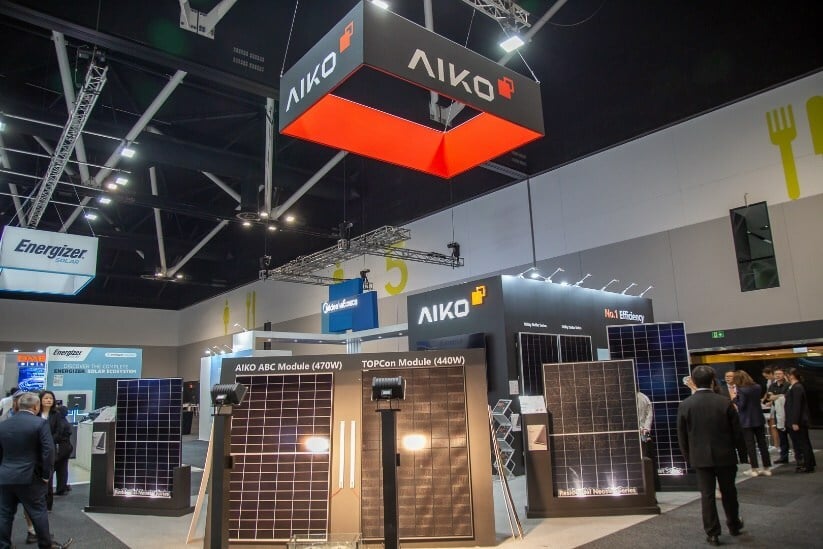
Chinese solar manufacturer Aiko Solar said yesterday (31 October) it has partnered with the Australian Centre for Advanced Photovoltaics (ACAP) to launch a US$4 million initiative aiming to achieve 30% efficiency with interdigitated back contact (IBC) solar cells.
The companies said the partnership, which will focus on enhancing silicon solar cell efficiency using advanced photon multiplication (PM) technology, aims to drive the “next wave of innovation in PV technology”.
Try Premium for just $1
- Full premium access for the first month at only $1
- Converts to an annual rate after 30 days unless cancelled
- Cancel anytime during the trial period
Premium Benefits
- Expert industry analysis and interviews
- Digital access to PV Tech Power journal
- Exclusive event discounts
Or get the full Premium subscription right away
Or continue reading this article for free
IBC solar cell technology offers various attractive qualities, including higher efficiency, energy yield, and reliability. These qualities led Professor Martin Green, a recipient of a Queen Elizabeth Prize for Engineering and founder of the ACAP, a research centre, to tell PV Tech in December 2023 that he expects IBC technology to be the “winner in the long run”.
“I believe that IBC technology will win eventually. But whether all companies will switch to that in five years or whether it will take longer, I’m not too sure. But I think eventually, everyone will be manufacturing IBC cells,” Professor Green told PV Tech.
Achieving 30% efficiency would be a leap for solar cell technology, with contemporary crystalline silicon cells sitting around 29% efficiency.
Aiko Solar said the project’s design allows for smooth integration into existing solar manufacturing processes, making it a “transformative” development with “immediate industry impact”.
Commenting on the partnership, Professor Green outlined that the University of South Wales’s research capabilities and Aiko Solar’s prominence in the solar PV industry will help the collaboration “push the boundaries of photovoltaic performance and shape the future of solar energy”.
Maxeon claims patent infringement against Aiko Solar’s IBC technology
Aiko Solar’s IBC solar cell technology has come under scrutiny throughout 2024, with Maxeon opening an appeal and a patent infringement suit against the Chinese cell and module manufacturer.
Maxeon also opened a suite of lawsuits over tunnel oxide passivated contact (TOPCon) cell technology in the US , where it is attempting to open a TOPCon manufacturing facility.
In terms of the IBC technology, Maxeon CEO Bill Mulligan told PV Tech Premium in June 2024 that the company “believe pretty strongly that they’re [Aiko Solar] infringing on our technology”.
“We filed a suit against Aiko a few months ago in the Netherlands. We didn’t prevail on the preliminary injunction, but the bar for injunctions is quite high. We didn’t lose the suit; we just didn’t get the injunction,” Mulligan said.
“They were able to do some clever lawyering and cast doubt on some of the analytical measurements we did. We’ve redone those measurements – we were right of course. We’re appealing the decision.”
Aiko Solar’s entry into the Australian solar PV market
Aiko Solar entered the Australian solar PV market earlier this year in March, having signed supply deals for 2GW of its GEN 2 n-type all back contact ABC modules.
At the Australian Smart Energy 2024 event, Aiko signed deals with solar distributors Solar Juice, AC Solar Warehouse, Sol Distribution, and Tradezone, adding up to 2GW. The company did not disclose the individual deal sizes.
The ABC modules have a 25.15% conversion efficiency, which Aiko said is certified by German technology testing house TÜV-SÜD. They are intended for residential, commercial, and industrial (C&I) markets and utility-scale deployments.






